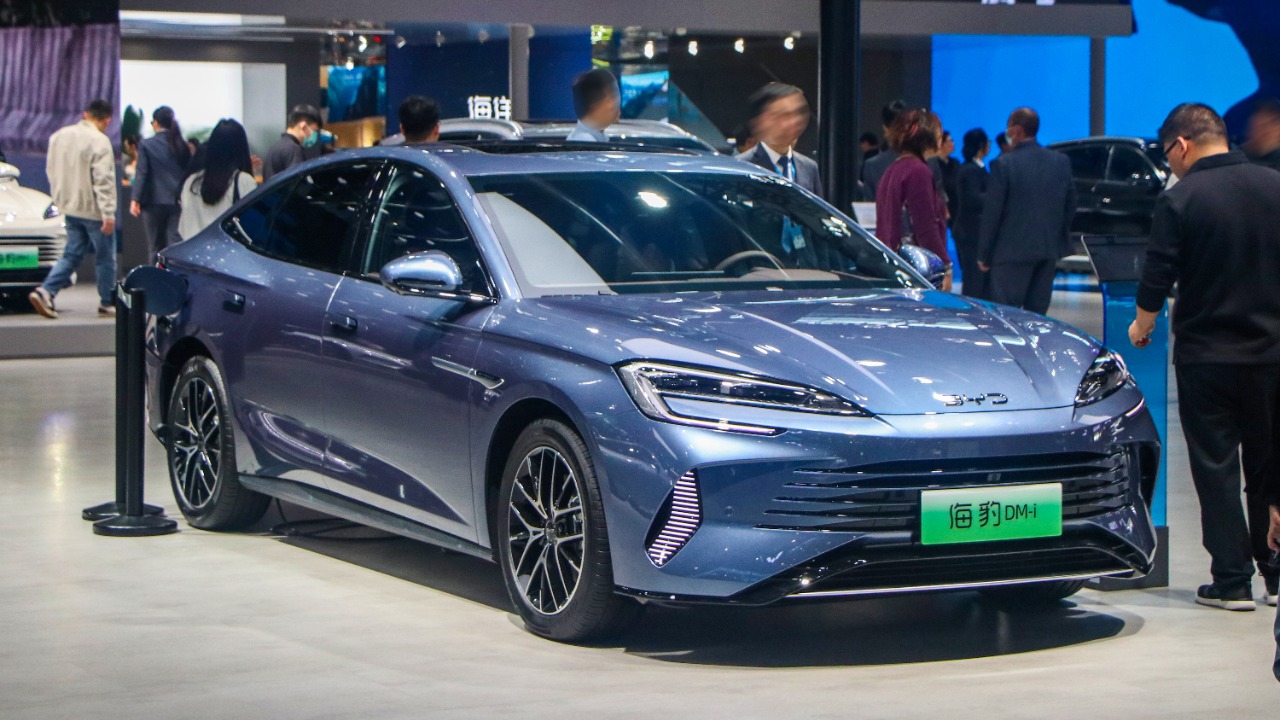
Recent reporting reveals that demand for Chinese-made cars in the US is increasing as of October 15, 2025, even amid growing concerns over privacy and security risks associated with connected vehicle technologies. This trend highlights a complex landscape where consumer interest in affordable and technologically advanced vehicles intersects with significant apprehensions about data privacy and cybersecurity.
Rising Market Demand for Chinese Vehicles
The US market is witnessing a notable rise in the demand for Chinese electric vehicles (EVs), driven primarily by their affordability and advanced features. Sales figures indicate a surge in imports of models like the BYD Han and NIO ES6, which are gaining traction among budget-conscious consumers seeking cost-effective alternatives to domestic brands. These vehicles offer competitive pricing and often include features that rival or surpass those of American counterparts, making them attractive options for many buyers.
Dealerships across the country report increased customer interest in these Chinese models, citing their value proposition as a key factor. In urban areas, where electric vehicle infrastructure is more developed, the adoption rate of Chinese EVs is particularly high. This regional variation underscores the importance of supportive infrastructure in facilitating the growth of foreign car sales. As more cities invest in EV charging stations, the appeal of these vehicles is likely to expand further, enhancing their market penetration in the US.
Key Players and Entry Strategies
Major Chinese automakers like BYD and NIO are making strategic moves to enter the US market, employing a mix of partnerships and direct sales approaches. BYD, for instance, has established collaborations with local dealerships to streamline its entry, while NIO is focusing on direct-to-consumer sales to build brand recognition. These companies are targeting a diverse demographic, from environmentally conscious millennials to tech-savvy professionals, aiming to capture a broad customer base.
Marketing strategies play a crucial role in this expansion, with Chinese automakers emphasizing the value and innovation of their vehicles through promotional events and online campaigns. These efforts are designed to resonate with American buyers, highlighting the technological advancements and cost savings associated with their products. Additionally, to mitigate the impact of tariffs and improve accessibility, some manufacturers are considering local assembly plans, which could further enhance their competitiveness in the US market.
Privacy Risks in Connected Cars
Despite the growing popularity of Chinese vehicles, concerns about privacy risks persist. These cars often come equipped with advanced telematics systems capable of collecting and transmitting user data back to manufacturers overseas. Experts warn that such capabilities could potentially lead to unauthorized surveillance, with in-car cameras and sensors posing significant privacy threats. These concerns are particularly pronounced given the geopolitical tensions between the US and China, which amplify fears of data misuse.
Consumer awareness of these privacy issues varies, with some buyers expressing unease about the potential for data breaches. Surveys indicate that while many consumers appreciate the technological benefits of connected cars, they remain wary of the implications for their personal information. This dichotomy highlights the need for greater transparency and robust data protection measures from manufacturers to reassure potential buyers.
Security Vulnerabilities and Cyber Threats
The security of Chinese EVs is another area of concern, with reports of hacking risks and software vulnerabilities that could allow remote control or data breaches. The National Highway Traffic Safety Administration (NHTSA) has increased its scrutiny of vehicle cybersecurity standards for imports, reflecting the seriousness of these threats. As connected cars become more prevalent, ensuring their security is paramount to protecting consumers and maintaining trust in the automotive industry.
Manufacturers are responding to these challenges by implementing software updates and encryption features designed to enhance vehicle security. However, the effectiveness of these measures varies, with independent audits revealing mixed results. As the industry evolves, continuous improvements in cybersecurity protocols will be essential to safeguarding both consumer data and the integrity of connected vehicle systems.
Balancing Concerns with Consumer Choices
US buyers are increasingly weighing privacy and security concerns against the economic benefits of purchasing Chinese vehicles. Polls and interviews suggest a shift in attitudes, with many consumers prioritizing affordability and technological innovation over potential risks. This trend reflects a broader willingness to embrace foreign-made products, provided they offer tangible advantages in terms of cost and performance.
Policy responses to these developments include proposed legislation on data localization for foreign vehicles, aimed at ensuring that consumer data remains within US borders. Such measures could alleviate some privacy concerns, fostering greater confidence in the safety of connected cars. Looking ahead, trade tensions between the US and China may influence long-term demand trends, potentially affecting the availability and pricing of Chinese vehicles in the American market.
As the landscape of the automotive industry continues to evolve, the interplay between consumer preferences, technological advancements, and regulatory frameworks will shape the future of Chinese car sales in the US. For more detailed insights, visit Ars Technica.